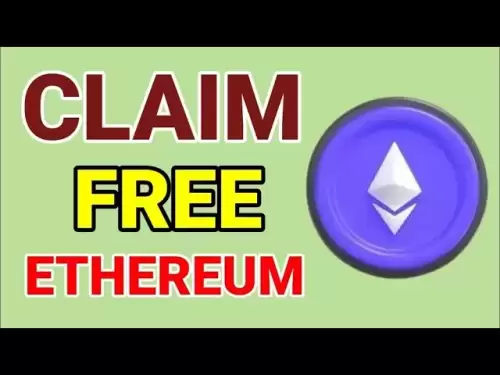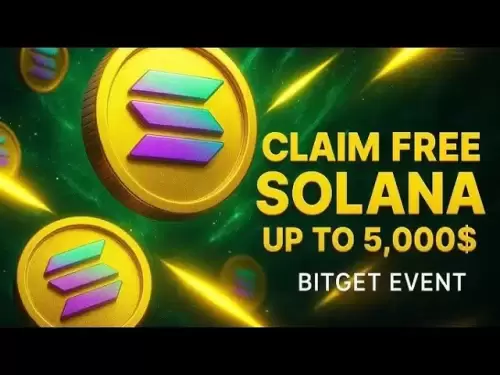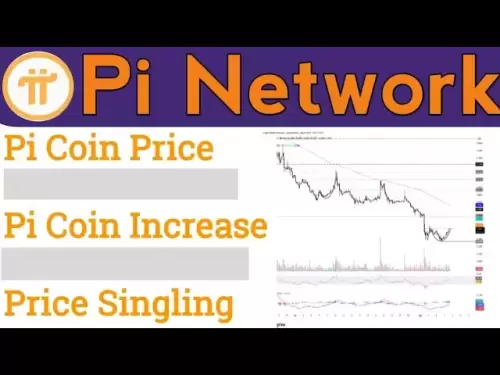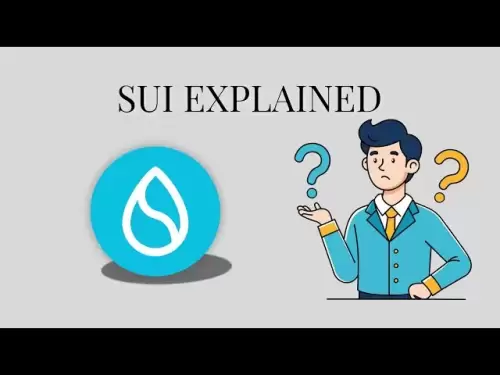-
 Bitcoin
Bitcoin $116900
0.00% -
 Ethereum
Ethereum $4280
5.48% -
 XRP
XRP $3.265
-1.45% -
 Tether USDt
Tether USDt $1.000
-0.01% -
 BNB
BNB $807.0
1.41% -
 Solana
Solana $183.1
2.93% -
 USDC
USDC $0.9999
0.00% -
 Dogecoin
Dogecoin $0.2440
6.50% -
 TRON
TRON $0.3357
-0.88% -
 Cardano
Cardano $0.8178
2.63% -
 Hyperliquid
Hyperliquid $44.13
7.45% -
 Chainlink
Chainlink $21.39
9.09% -
 Stellar
Stellar $0.4524
-0.84% -
 Sui
Sui $3.957
2.13% -
 Bitcoin Cash
Bitcoin Cash $572.7
-2.54% -
 Hedera
Hedera $0.2671
1.54% -
 Avalanche
Avalanche $24.77
4.17% -
 Ethena USDe
Ethena USDe $1.001
0.02% -
 Litecoin
Litecoin $122.3
-1.94% -
 Toncoin
Toncoin $3.432
2.26% -
 UNUS SED LEO
UNUS SED LEO $9.007
0.49% -
 Shiba Inu
Shiba Inu $0.00001396
5.26% -
 Uniswap
Uniswap $11.09
1.64% -
 Polkadot
Polkadot $4.155
4.57% -
 Dai
Dai $1.000
0.00% -
 Pepe
Pepe $0.00001253
5.11% -
 Cronos
Cronos $0.1588
2.67% -
 Bitget Token
Bitget Token $4.512
0.05% -
 Monero
Monero $275.0
0.64% -
 Ethena
Ethena $0.7527
15.10%
One article comprehensively introduces the Gods Unchained (GODS) coin project
Gods Unchained is a free-to-play collectible card game built on the blockchain, offering true ownership through NFTs, rewarding gameplay, and community-driven governance.
Dec 25, 2024 at 12:25 am
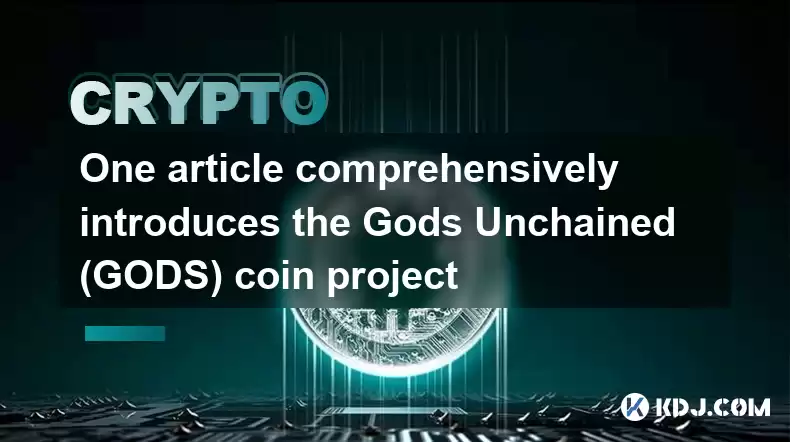
Gods Unchained (GODS): A Comprehensive Guide to the Collectible Card Game Token
Key Points:
- What is Gods Unchained (GODS)?
- Gameplay and Gameplay Modes
- Tokenomics and Token Utility
- Earning GODS Tokens
- Marketplace and Assets
- Governance and Community
- Partnerships and Collaborations
What is Gods Unchained (GODS)?
Gods Unchained is a free-to-play, competitive collectible card game built on the blockchain. It aims to revolutionize the genre by introducing true ownership and player-driven economies through non-fungible tokens (NFTs) and rewarding gameplay. Players can collect, trade, and battle with unique digital cards, unlocking the potential to earn crypto rewards.
Gameplay and Gameplay Modes
Gods Unchained features several gameplay modes, including:
- Ranked Mode: Players compete for ranks and rewards in seasonal leaderboards.
- Constructed Mode: Players build their own decks from available cards to battle opponents.
- Limited Mode: Players draft decks from a limited pool of cards, testing their adaptability.
- Forge: Players create new cards by combining existing ones, creating a fusion of strategy and creativity.
Tokenomics and Token Utility
The GODS token serves as the native cryptocurrency for Gods Unchained and has multiple functionalities:
- Governance: GODS holders participate in platform governance, voting on proposals that shape the game's future.
- Staking: Users can stake GODS to earn rewards and support the network's security.
- Asset Purchases: GODS can be used to purchase in-game assets, including cards, avatars, and booster packs.
- Rewards: Players earn GODS as rewards for completing quests, winning battles, and contributing to the community.
Earning GODS Tokens
There are various ways to earn GODS tokens in Gods Unchained:
- Gameplay: Winning battles, completing quests, and participating in special events yield GODS rewards.
- Forge: Creating new cards through Forge provides additional GODS earnings.
- Selling Assets: Selling cards and other in-game assets on the marketplace can generate GODS revenue.
- Staking: Holders who stake GODS contribute to network security and earn rewards in return.
Marketplace and Assets
Gods Unchained features a robust marketplace where players can exchange cards, avatars, and other in-game assets. These digital items are secured on the blockchain as NFTs, ensuring true ownership and verifiable scarcity. Each asset's value is determined by its rarity, gameplay power, and collectible desirability.
Governance and Community
Gods Unchained places a significant emphasis on community feedback and governance. GODS holders can participate in the game's governance process by voting on proposals that range from content updates to gameplay changes. The team actively engages with the community through Discord, social media, and regular updates.
Partnerships and Collaborations
Gods Unchained has forged partnerships with several notable entities in the gaming and blockchain industries:
- Immutable: Gods Unchained utilizes Immutable's Layer 2 solution, which provides fast, gas-free transactions.
- Plaid: Plaid simplifies the process of connecting real-world bank accounts to the game, enabling seamless withdrawals and deposits.
- ESL Gaming: Gods Unchained collaborates with ESL Gaming to host tournaments and competitions, bringing mainstream recognition to the game.
FAQs
Q: Are there any advantages to playing Gods Unchained over other collectible card games?
A: Yes, Gods Unchained offers unique advantages, including true ownership of digital assets through NFTs, real financial rewards for gameplay, and a player-driven economy fueled by the GODS token.
Q: How can I get started playing Gods Unchained?
A: To start playing, you can visit the official Gods Unchained website to create a free account and download the game client.
Q: Can I withdraw my GODS tokens and turn them into fiat currency?
A: Yes, you can withdraw your GODS tokens to your personal wallet and exchange them for fiat currency through various cryptocurrency exchanges.
Q: How does the Forge mechanism work?
A: Forge allows you to combine two cards of the same rarity and element to create a new card. The resulting card will inherit the attributes of the parent cards, with increased level and gameplay power.
Q: What are the different card rarities in Gods Unchained?
A: The card rarities in Gods Unchained are, in ascending order: Common, Rare, Epic, Legendary, and Divine. Each rarity level affects the card's rarity, gameplay properties, and value in the marketplace.
Disclaimer:info@kdj.com
The information provided is not trading advice. kdj.com does not assume any responsibility for any investments made based on the information provided in this article. Cryptocurrencies are highly volatile and it is highly recommended that you invest with caution after thorough research!
If you believe that the content used on this website infringes your copyright, please contact us immediately (info@kdj.com) and we will delete it promptly.
- Cold Wallet's Presale: A High ROI Haven in the Crypto Storm
- 2025-08-10 12:50:11
- Meme Coins in 2025: Analyst Accumulation and the Hunt for the Next Moonshot
- 2025-08-10 13:10:11
- Meme Coins in 2025: Early Access to the Moon with $MOBU
- 2025-08-10 12:30:11
- Bitcoin's Golden Cross: Rally Outlook and What's Next
- 2025-08-10 12:30:11
- XRP Price, Remittix, and Ripple Rivals: A Crypto Cocktail
- 2025-08-10 10:50:16
- Live Crypto Updates, August 10: ETH Soars, Trump's Crypto Play, and More!
- 2025-08-10 11:30:16
Related knowledge

How to purchase Aragon (ANT)?
Aug 09,2025 at 11:56pm
Understanding Aragon (ANT) and Its PurposeAragon (ANT) is a decentralized governance token that powers the Aragon Network, a platform built on the Eth...

What is the most secure way to buy Ocean Protocol (OCEAN)?
Aug 10,2025 at 01:01pm
Understanding Ocean Protocol (OCEAN) and Its EcosystemOcean Protocol (OCEAN) is a decentralized data exchange platform built on blockchain technology,...

Where can I buy UMA (UMA)?
Aug 07,2025 at 06:42pm
Understanding UMA and Its Role in Decentralized FinanceUMA (Universal Market Access) is an Ethereum-based decentralized finance (DeFi) protocol design...

How to buy Storj (STORJ) tokens?
Aug 09,2025 at 07:28am
Understanding Storj (STORJ) and Its Role in Decentralized StorageStorj is a decentralized cloud storage platform that leverages blockchain technology ...

What is the best app to buy Nano (NANO)?
Aug 09,2025 at 03:35am
Understanding Nano (NANO) and Its Unique FeaturesNano is a feeless, instant cryptocurrency designed for fast peer-to-peer transactions. Unlike many ot...

Where can I purchase Siacoin (SC)?
Aug 08,2025 at 11:14am
Understanding Siacoin (SC) and Its Role in the Sia NetworkSiacoin (SC) is the native cryptocurrency of the Sia decentralized cloud storage platform, a...

How to purchase Aragon (ANT)?
Aug 09,2025 at 11:56pm
Understanding Aragon (ANT) and Its PurposeAragon (ANT) is a decentralized governance token that powers the Aragon Network, a platform built on the Eth...

What is the most secure way to buy Ocean Protocol (OCEAN)?
Aug 10,2025 at 01:01pm
Understanding Ocean Protocol (OCEAN) and Its EcosystemOcean Protocol (OCEAN) is a decentralized data exchange platform built on blockchain technology,...

Where can I buy UMA (UMA)?
Aug 07,2025 at 06:42pm
Understanding UMA and Its Role in Decentralized FinanceUMA (Universal Market Access) is an Ethereum-based decentralized finance (DeFi) protocol design...

How to buy Storj (STORJ) tokens?
Aug 09,2025 at 07:28am
Understanding Storj (STORJ) and Its Role in Decentralized StorageStorj is a decentralized cloud storage platform that leverages blockchain technology ...

What is the best app to buy Nano (NANO)?
Aug 09,2025 at 03:35am
Understanding Nano (NANO) and Its Unique FeaturesNano is a feeless, instant cryptocurrency designed for fast peer-to-peer transactions. Unlike many ot...

Where can I purchase Siacoin (SC)?
Aug 08,2025 at 11:14am
Understanding Siacoin (SC) and Its Role in the Sia NetworkSiacoin (SC) is the native cryptocurrency of the Sia decentralized cloud storage platform, a...
See all articles





















